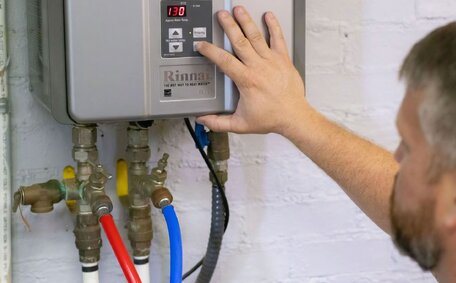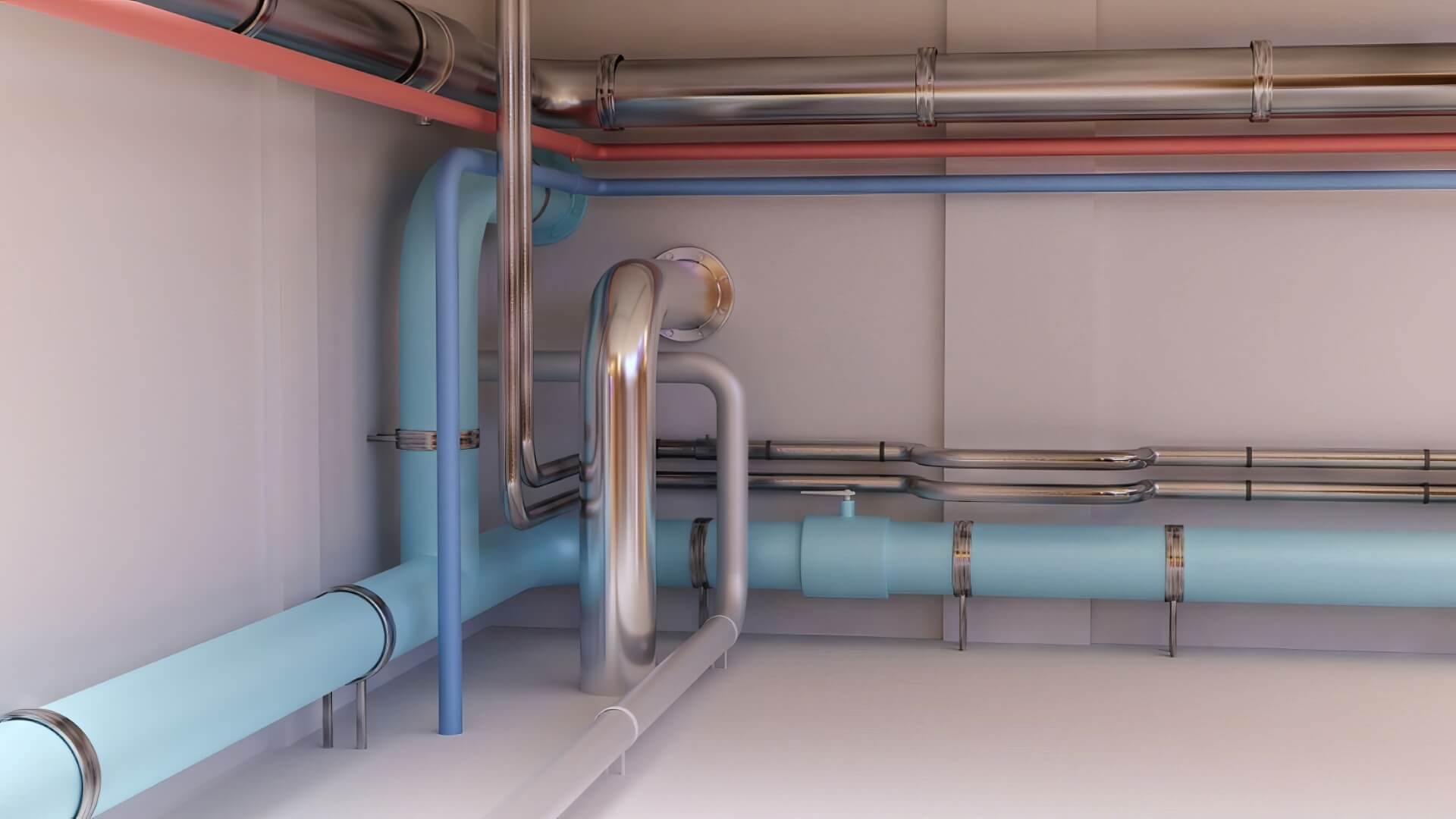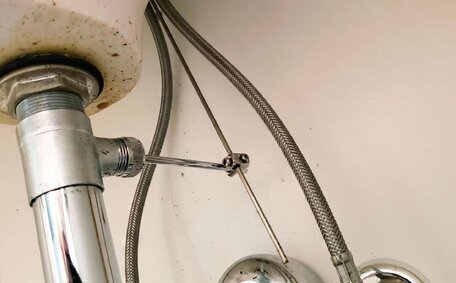Introduction to blocked drains in apartments
Blocked drains in apartment buildings can be a complex and frustrating issue for residents and strata managers alike. Unlike houses where the responsibility lies solely with the homeowner, resolving blocked drains in apartments requires coordinated effort across many parties.
With multiple households sharing sewer lines, it’s common for grease, hair, and other debris to accumulate and cause clogs. Over time, drain pipes can corrode, settle, or develop root ingress. Any of these issues can restrict flow and lead to backups.
Blocked drains not only create unpleasant odours and pooling water, but also increase the risk of leaks that damage walls, floors, and ceilings. This results in expensive repairs that impact owners’ wallets through higher strata fees and special levies.
The difficulty lies in identifying precisely where the blockage is located. While residents usually notice the problem from inside their apartment, the actual clog could be further down the line. Determining if it’s located within an owner’s lot, the common property, or even council land requires professional drain inspection.
From there, choosing the right solution depends on the nature and position of the obstruction. While residents can attempt home remedies like boiling water or chemical drain cleaners, severe blockages often need hydrojetting to blast the lump away. For pipes themselves that are cracked or misaligned, piping repairs or full replacement are required.
The stakes for resolving blocked drains in apartments are high.
If left unattended, the problem will only worsen over time, risking thousands in property damage and seriously impacting residents’ quality of life. At Glenwood Plumbing, our team has the expertise to accurately locate the blockage and determine the most appropriate fix to get your drains flowing freely again.
Who is responsible for clearing blocked drains in apartments?
When it comes to blocked drains in apartments, determining responsibility is complex. In general, the strata or body corporate is responsible for issues within the common drain lines that serve multiple apartments. Individual apartment owners are responsible for blockages that occur within the drainage pipes inside their apartment.
The strata corporation owns and maintains all common property, including the stacks and drainage lines that remove wastewater from the building. If a clog occurs in these shared pipes, the strata is obligated to engage a licenced plumber to clear the blockage.
Inside apartments, drain lines branch off from the main stacks to service kitchens, bathrooms, laundries and floor wastes. Blockages here are the homeowner’s responsibility to repair. However, if the clog extends into the common stacks, the strata may need to assist with clearing it.
One of the challenges with apartment drain blocks is identifying exactly where the obstruction is located. Often, multiple parties need to cooperate to diagnose the issue and determine responsibility. A professional plumber can use CCTV drain inspection to pinpoint the location of a clog.
Regular drain maintenance is crucial to prevent blockages in apartments. Strata should schedule servicing of common lines annually. Residents should also use drain mesh screens and avoid pouring fats or harsh chemicals down sinks and drains.
If you’re unsure whether a clogged drain is a strata or private issue, contact our team. With extensive apartment plumbing experience, we can quickly determine responsibility and recommend the optimal solution.
Body corporate/owners corporation responsibility
p>p>p>p>p>p>p>p>p>p>p>p>p>p>p>p>p>
Strata property owner responsibility
While the strata corporation handles issues in common property lines, individual apartment owners have responsibilities when it comes to plumbing and drainage inside their lot.
Owners are obligated to properly maintain drains within their apartment. This includes regularly cleaning traps and screens and avoiding pouring fats, oils or harsh chemicals down fixtures. Owners should also monitor their drains for any gurgling noises, leaks or slow drainage that could indicate a potential blockage.
If an owner experiences any drainage problems within their apartment, they should engage a licenced plumber to diagnose and rectify the issue. This may involve using a plumbing snake or hydrojetting if severe buildup occurs in internal drain lines.
Strata property owners should be vigilant about not causing blockages that could impact common property. Avoid pouring unsuitable items like wet wipes or coconut oil down drains. Always wipe oily pots and pans before washing to prevent grease buildup.
If an owner’s actions cause a blockage in common lines, they may be liable for the costs incurred to clear the clog. This is why residents should take care to maintain their internal drains and drain covers.
With multiple parties involved, effective communication is key when it comes to plumbing in apartments. Owners should promptly inform the strata if they experience any drainage issues. Together, appropriate solutions can be determined and responsibility assigned.
At Glenwood Plumbing, we work with owners and strata corporations to tackle blocked drains and other apartment plumbing issues. With a detailed inspection, we can identify the exact location of a blockage and provide practical solutions.
Common causes of blocked drains in apartments
Living in an apartment comes with its own unique set of plumbing challenges. With multiple households sharing drainage lines, it’s no surprise various blockages arise.
One of the most common culprits is accumulation of hair and soap scum. Showers and baths produce residue that sticks to pipes. Over time, this debris accumulates and causes slow drainage.
Food scraps washed down kitchen sinks are another major source of clogs. Fats, oils and grease solidify inside drains and cling to pipe walls. Food particles can also get trapped and lead to obstructions.
Improper garbage disposal use is another issue in apartments. Residents may attempt to grind large items like egg shells or fibrous vegetable peels which bulk up and block drains.
Tree roots pose big problems for sewer lines. Root systems can infiltrate joints or cracks in underground drainage pipes. As roots grow thicker, they obstruct water flow and require professional removal.
Missing drain screens allow foreign objects to enter the pipes. Items like hair clips, utensils and toys can snag and accumulate to block drains.
Aged and damaged drain pipes also contribute to clogs. Corrosion, fractures or misalignments within pipes provide places for waste to catch and build up over time.
Being vigilant with drain maintenance and avoiding pouring unsuitable items down sinks and drains will help minimise blockages in your apartment. If you experience any persistent drainage issues, contact our team for prompt solutions.
Importance of regular drain maintenance
Regular drain maintenance is crucial for apartment residents to help avoid blockages and other issues. When drains are improperly maintained, drain pipes can become clogged with accumulated grease, soap scum, hair, food scraps and other debris.
It’s recommended owners schedule professional drain cleaning every 12 months. Licenced plumbers use high-pressure water jetting to thoroughly clean pipe interiors and wash away built up grime.
Residents should also play their part by using drain mesh screens and avoiding putting unsuitable items down sinks that could cause obstructions. Wiping pots and pans of excess grease before washing helps prevent build up.
Vigilant drain care helps minimise leaks, bursts and overflows that can cause extensive property damage. Water leaks left unchecked can lead to mould and deterioration of walls and floors.
By keeping drains clear, owners also reduce bad odours from sewer gas coming up drain lines into their apartment. When everyone maintains their own drains, the shared lines also stay clear.
At the first sign of any gurgling, blockage or sluggish drainage, apartment owners should call in professional plumbers. The longer the issue persists, the higher the risk of pipe damage and flooding occurring.
The team at Glenwood Plumbing can provide scheduled maintenance plus rapid response for any apartment drain problems. Keeping your drains free flowing protects your property and avoids costly repairs.
Methods for clearing simple drain blockages
For minor drain clogs, apartment residents can try some simple unblocking methods before calling a plumber.
Boiling water is one of the easiest ways to clear debris. Boil a full kettle and slowly pour down the blocked drain. The hot water will help dissolve grease and break up objects lodged in the pipe.
A baking soda and vinegar treatment can also dislodge blockages. Start by pouring 1/2 cup of baking soda down the drain followed by 1 cup of vinegar. Cover the drain and let the chemical reaction bubble for 10-15 minutes then rinse with hot water.
Plungers are effective for clearing blockages close to the drain opening. Fill the sink with enough water to cover the plunger head, then plunge vigorously 15-20 times to help dislodge the clog.
Hand crank or electric drain augers/snakes are designed to break through tough obstructions. Insert the metal coil down the pipes and slowly crank the handle to work through the clog.
Chemical drain cleaners available at supermarkets can help dissolve organic matter like grease, hair and food. Always follow directions carefully when using caustic products.
For drains that require more extensive repairs, a professional plumber has industry-leading equipment to clear any blockages and get your drains flowing freely again.
Seeking professional help for severe blockages
Attempting to clear severe drain blockages yourself can be dangerous and cause further damage. At a certain point, it’s best to call in professional help from a licenced plumber.
If water is overflowing from drains or you notice flooding, this indicates a major clog that requires urgent attention. Leaving serious blockages risks property damage and the problem will only worsen over time.
Plumbers have specialised equipment like hydrojetters and drain augers to clear even the most stubborn obstructions. Hydrojetting uses highly pressurised water to scour the full length of pipes and wash away years of accumulated gunk.
For tough clogs or those deep within the pipes, plumbers will use cable augers, or drain snakes. These metal coils can extend up to 100 feet down pipes and chew through debris. Proper training is crucial to operate them safely and avoid pipe damage.
Chemical drain cleaners from supermarkets often fail to solve substantial clogs and pipe issues. Plumbers have industrial-strength formulas and the knowledge to dissolve blockages and free stuck pipes.
If pipes themselves have shifted or broken, plumbers can assess if spot repairs or full replacement are required. They can also inspect drain lines with CCTV cameras to pinpoint problematic areas.
By leveraging professional equipment and expertise, plumbers can restore normal drainage quickly and prevent recurring problems. Their services also come with guarantees to ensure you get a blocked drain fixed properly the first time.
Don’t wait for serious plumbing issues to escalate. Reach out to the experienced team at Glenwood Plumbing if you notice any signs of extensive drain blockages. We service apartments across the Glenwood area 24/7.






